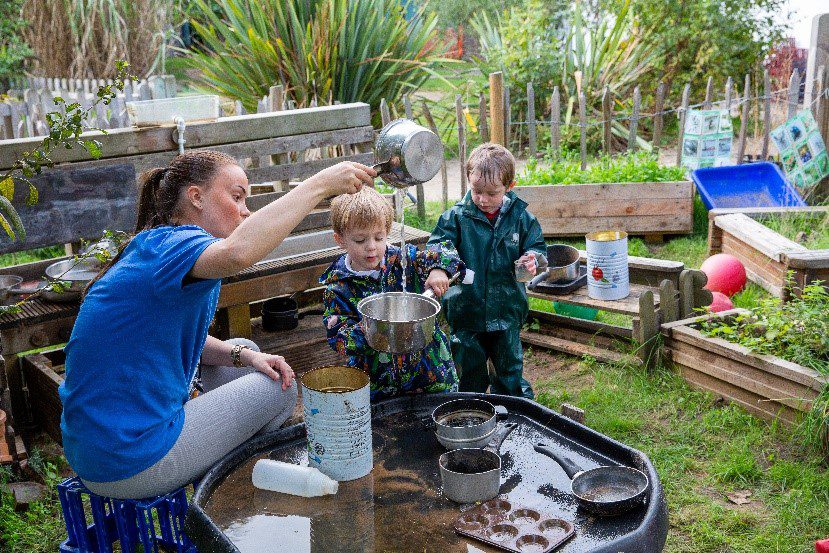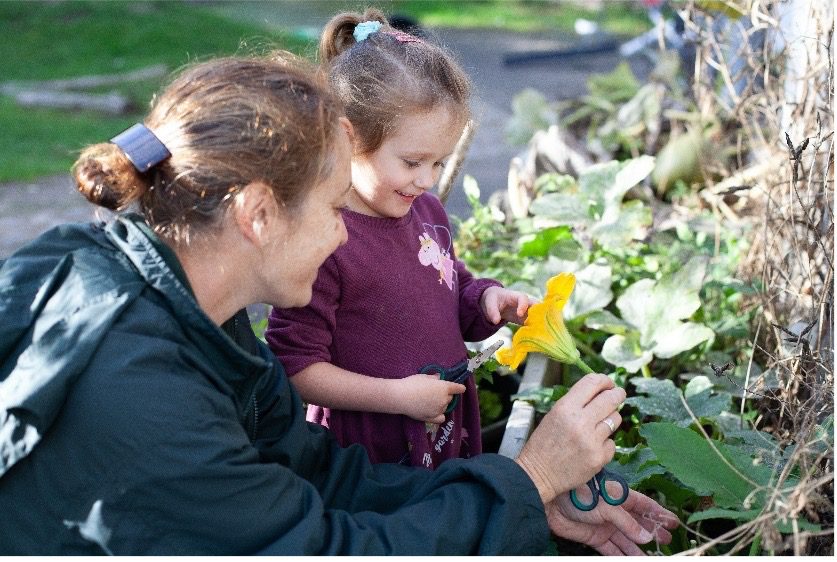When adults get it right outdoors, children truly benefit.
Spending time outdoors allows children to enjoy nature but, if we want them to engage with and in nature we need to think about the adult role.

“What better way to engage with the wonder of nature than in close relationship with someone else, who shares an enthusiasm and curiosity about nature and who can inspire and support children’s enquiries.”
(Tovey, 2021)
Throughout this year The Froebel Partnership, funded by the Froebel Trust, has been researching the impact and benefits of a Froebelian approach to engaging with nature on children, families and educators.
The Froebel Trust explains the Froebelian principle of engaging with nature as:
“Experience and understanding of nature and our place in it, is an essential aspect of Froebelian practice. Through real life experiences, children learn about the interrelationship of all living things. This helps them to think about the bigger questions of the environment, sustainability and climate change.”

At Guildford Nursery School and Family Centre, we have found that a Froebelian approach in natural outdoor spaces gives children and adults solace, the opportunity to become deeply engaged, confidence to communicate and a greater knowledge about the world we inhabit.
As we studied and reflected on the different outdoor spaces and their affordances (what the space offered the children), we came to appreciate that the affordances changed within the same space due to the changing weather. Children are in nature, experiencing the effects of the weather on their whole bodies with all their senses. Nature is not always visible but it can be felt.
Relationships matter. When adults nurture children, children learn to nurture children, everyone feels safe. Billy initially hated being outside, he really didn’t like the feel of wind on his face. Should he have the autonomy to choose never to go outside? But what about opportunities to engage with and in nature? The Froebelian principle of freedom with guidance can be so useful. The decision was taken for the adult with the closest relationship with Billy to take him out each day for an increasing amount of time, this amounted to a few seconds at first. Ensuring he felt nurtured in his warm suit and in the arms of his adult was important.
“It is important to nurture children to be caring, we must remember that this is their world to inherit and look after. A sense of wonder is a delight that should never diminish.”
(Member of staff)
Practitioners work and play alongside and with the children, always open to learning from the children and in doing so becoming more knowledgeable.
It isn’t possible to learn and understand about the effects of weather without experiencing it first-hand. Children spent time breaking up the large sheets of ice, transporting the pieces, taking photos of a collection of small pieces in the sunlight. Scarlet stood for a while watching the rain fall into her pot of sand at the same time appearing to enjoy the feeling of the rain on her coat hood.
So, what is nature? It is not only what is living but also the carefully thought out offering of resources such as sand, mud, herbs plus using and experiencing the different weathers and seasons.
“The child should experience nature ‘in all aspects – form, energy, substance, sound and colour’”.
(Froebel in Lilley 1967: 148)

As Froebelians, we believe that children deserve and need nurturing, knowledgeable and reflective educators.
We have seen that children need adults who are deeply attuned to nature, who show joy, curiosity, awe and wonder in the natural world. It would appear that those adults most attuned to nature are also those who are most in tune with the children.
Practitioner-research is enabling us to learn through self-activity and reflection. Our research partners from CREC (Centre for Research in Early Childhood) encourage, support and guide our reflection so that we are becoming more aware of our own learning. This is a vital component of a Froebelian approach.
Have we got the role of the adult completely right? Absolutely not! It requires ongoing and constant reflection.
References:
Lilley, I. (1967) Friedrich Froebel A selection from his writings, Cambridge: Cambridge University.
Tovey, H. (2021) An introduction to Froebel, children and nature. London: Froebel Trust



